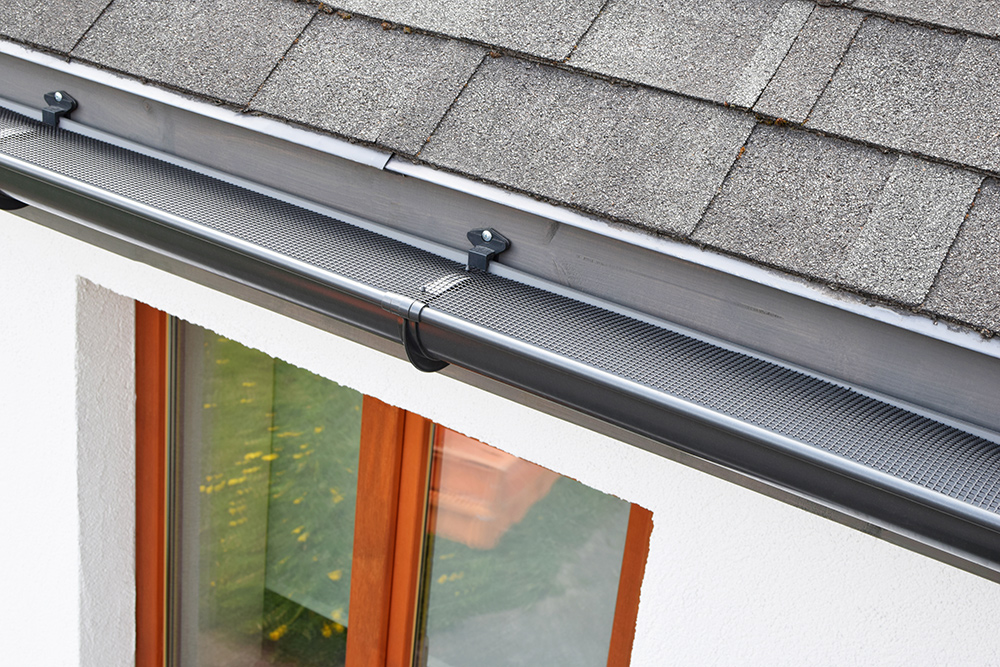As property owners, we’re constantly looking for the best ways to protect our homes or businesses. Installing gutter guards is one small way to do it that is often overlooked. While it may not seem like a big deal —or even unnecessary— gutter guards are key to your entire property’s structural integrity.
You should contemplate this element to have a solid roofing system, and you’ll find various materials and types of gutter guards. If you want to choose the best one, keep reading our guide to the different types of gutter guards below!
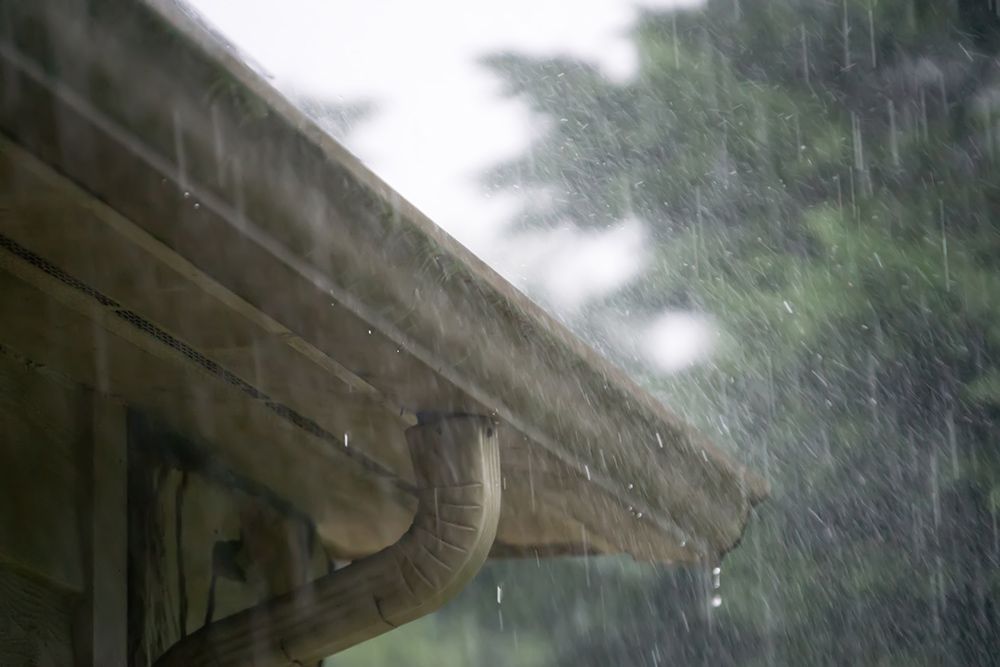
Are Gutter Guards Worth It?
If you’ve never installed gutter guards before and are contemplating if they’re worth the investment, there are many reasons why they’re vital. This simple component serves various functions and offers many benefits, which you should know.
- Protects Against Water Damage: Overflowing gutters are one of the leading causes of water damage. By keeping debris away, your gutters protect not only your roof but also your siding, foundation, and landscaping, saving you hundreds of dollars and disastrous accidents.
- Reduces Maintenance Burden: Gutter guards prevent you from constantly climbing up a ladder or requiring gutter cleaning too frequently by blocking most debris.
- Preserves Home Aesthetics: Water damage threatens not only your home’s structural integrity but also its appeal. Avoid unsightly stains, mold, and mildew with leaf guards.
- Extends Gutter Lifespan: Clogged gutters are more likely to corrode or damage. You can extend your gutter system’s lifespan with the various types of leaf guards for gutters available.
- Mitigates Pest Infestations: Filthy gutters aren’t only unsightly but also are the perfect breeding ground for mosquitoes, rodents, and insects. Gutter guards keep your gutters cleaner so that pests are kept at bay.
What Are The Types of Gutter Guards?
If you are convinced of the importance of gutter guards and are looking to safeguard your home with this outstanding product, you will encounter several types of gutter guards out there. Below, we’ll guide you through each of them so you can decide on the most fitting one for your needs:
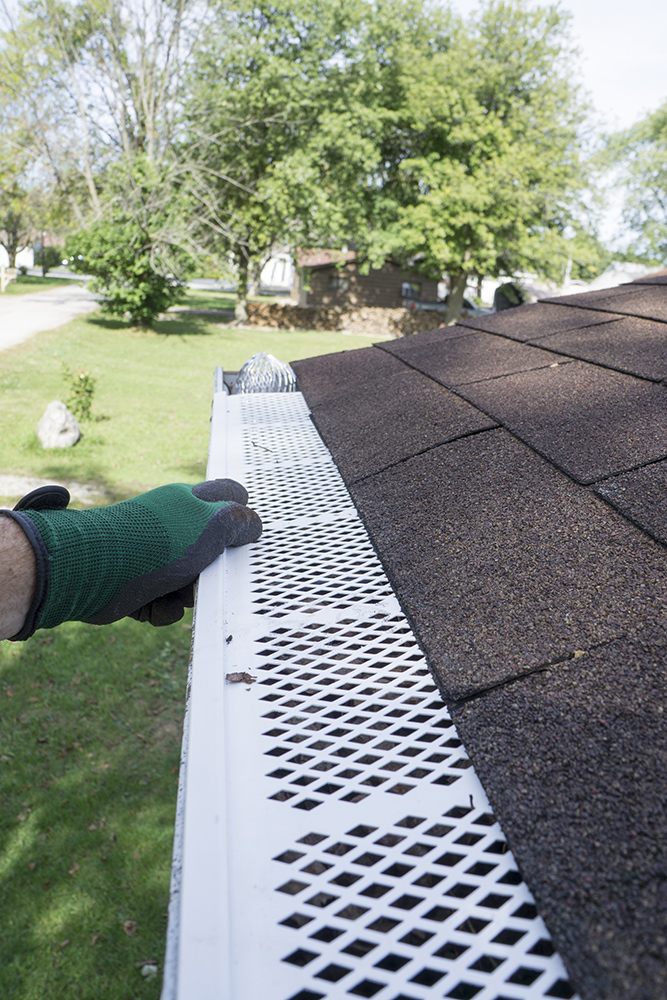
Screen Gutter Guards
Screen gutter guards, also known as gutter screens or filters, feature a perforated metal or plastic surface that acts as a barrier against leaves and larger debris.
Rather than being placed inside the gutter, they lay on top, and they’re very balanced regarding debris blockage and water flow. However, it is best to avoid installing screen guards in windy areas, as they’re not as resistant.
Pros:
- Affordable
- Easy installation
Cons:
- Frequent maintenance
- Low life span
Mesh Gutter Guards
Mesh gutter guards are standard due to their versatility and effectiveness. The holes in this model are smaller than those in a screen guard, which allows them to block more debris and pests. They also can be found in various materials, but remember you should avoid frail materials as they won’t last long or others that could damage your shingles by sliding underneath them.
Pros:
- Easy installation
- Low maintenance
- Blocks fine debris
Cons:
- Not Suitable for Heavy Rainfall
- Choosing the wrong material can cause shingle damage
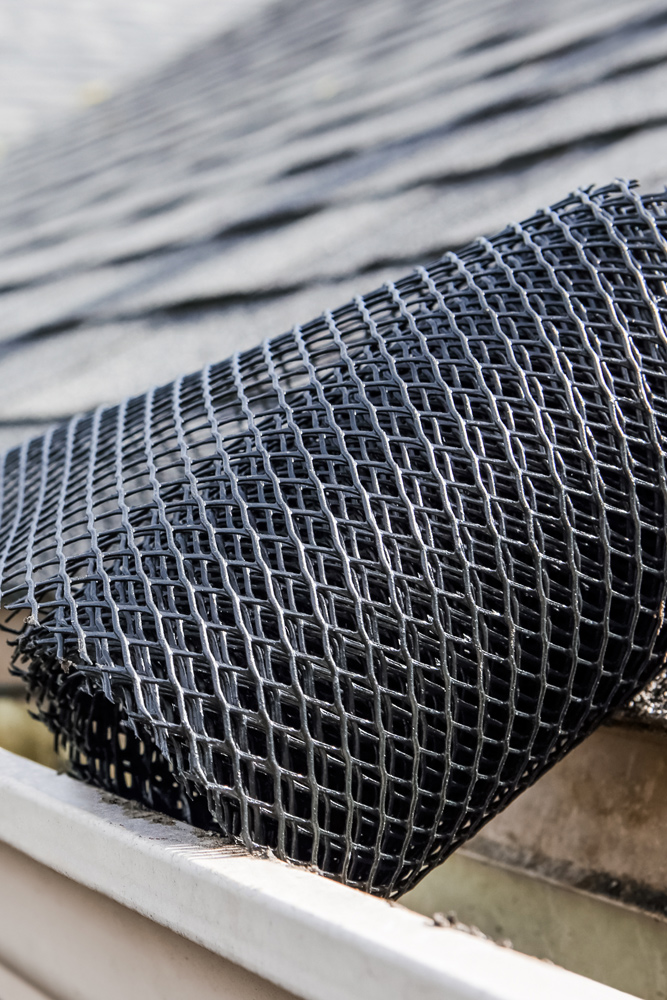
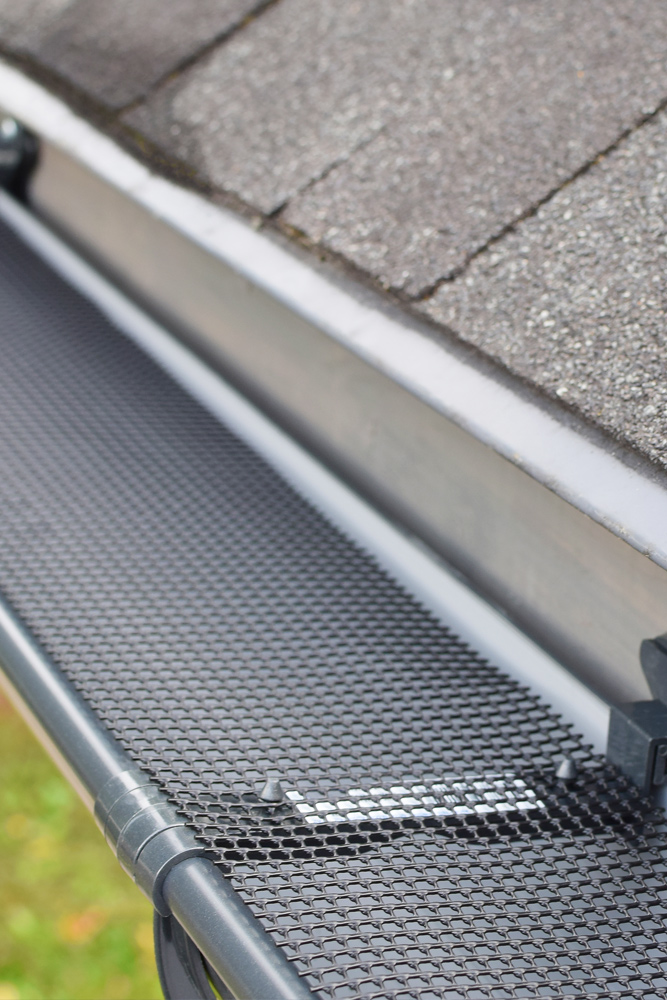
Micro-Mesh Gutter Guards
Thanks to their finer holes, micro mesh gutter guards are more meticulous than regular mesh. These act like a sieve, a barrier against even the finest debris, such as pine needles and shingle grit. Still, even though the debris is more controlled, so is the water flow.
They might not suit areas with heavy rainfall or high-flow areas on your roof.
Pros:
- High filtration
- Long-lasting
- Discrete look
Cons:
-
- Higher cost
- Not suitable for increased water flow
Reverse Curve Gutter Guards
Reverse curve leaf guards are one of the oldest types of gutter guards. They consist of a curved cover installed on top of your gutter and a slotted opening at the end.
They work based on water adhesion, allowing water to flow and directing debris away. This model works better for larger debris.
Pros:
- Prevents debris accumulation on top
- Handles high water flow
Cons:
- Complex Installation
- Water may not adhere appropriately in cold weather
- Poor installation can affect the roof warranty
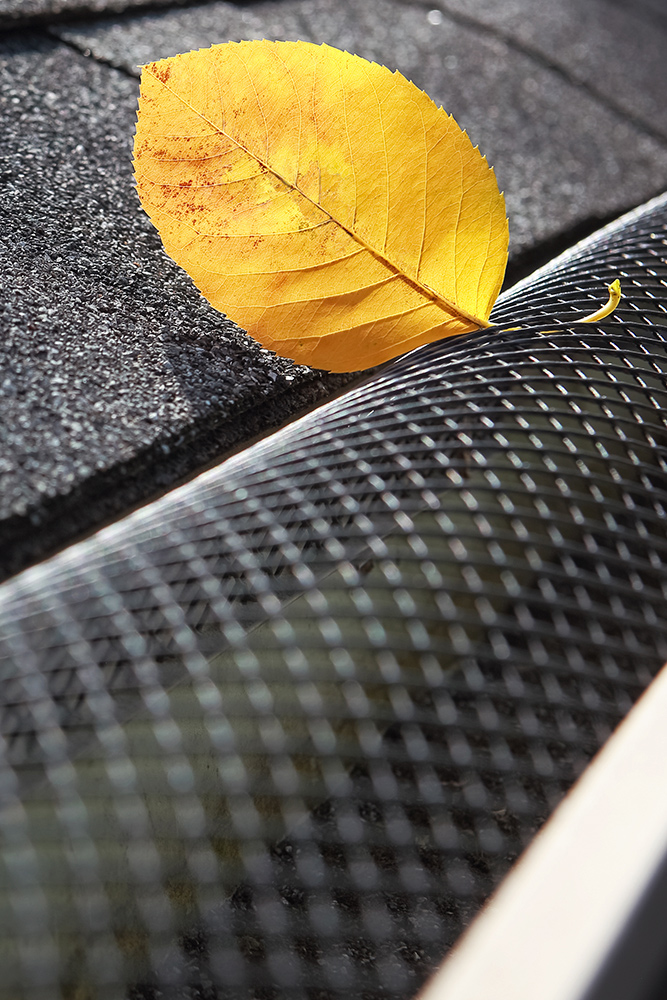
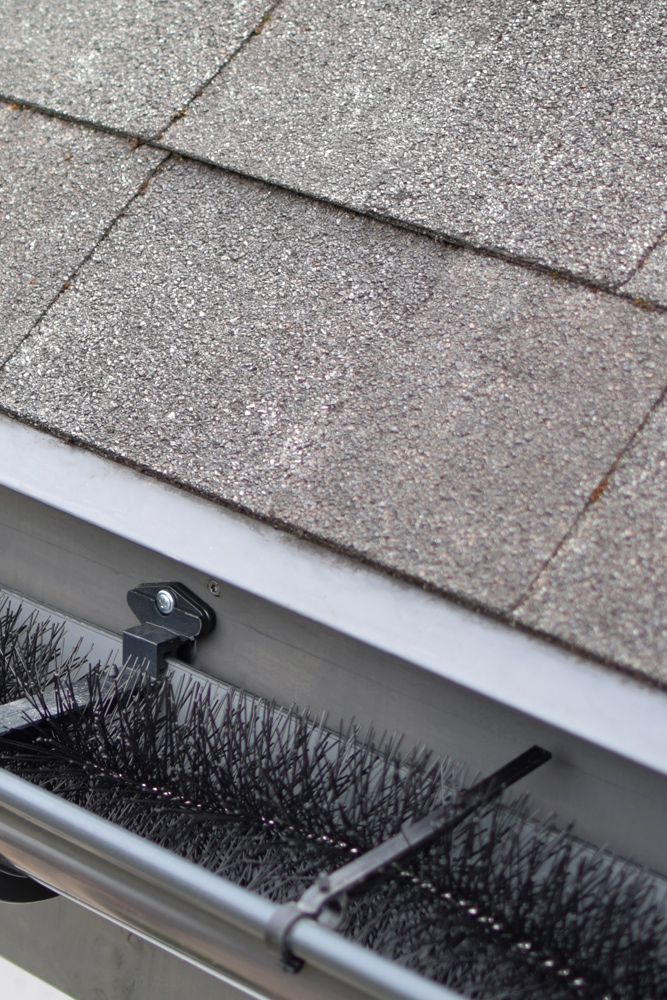
Bottle Brush Gutter Guards
Bottle brush gutter guards look like a bottle brush. How does it work? Debris gets caught in the bristles, yet water can run freely through the gutter.
They’re one of the easiest types of gutter guards to install. However, they are not great with fine debris or animals trying to use them as a home.
Pros:
- Affordable
- Easy to install
- Allows high water flow
Cons:
- Clogs easily with small debris
- Can attract birds and rodents
- Requires more maintenance
Foam Gutter Guards
Foam gutter guards are inserts made from porous foam that fits into the gutter. The foam lets water pass while the debris is blocked. In addition to their excellent protection, they’re also the easiest and most affordable to install all the different gutter guards. Still, constant exposure to the elements can degrade the material quicker than its counterparts.
Pros:
- Easy to maintain
- Cost-effective
- Straightforward installation
Cons:
-
- Deteriorate quicker than other type of gutter guards
- Hard to clean
- Are short-lived
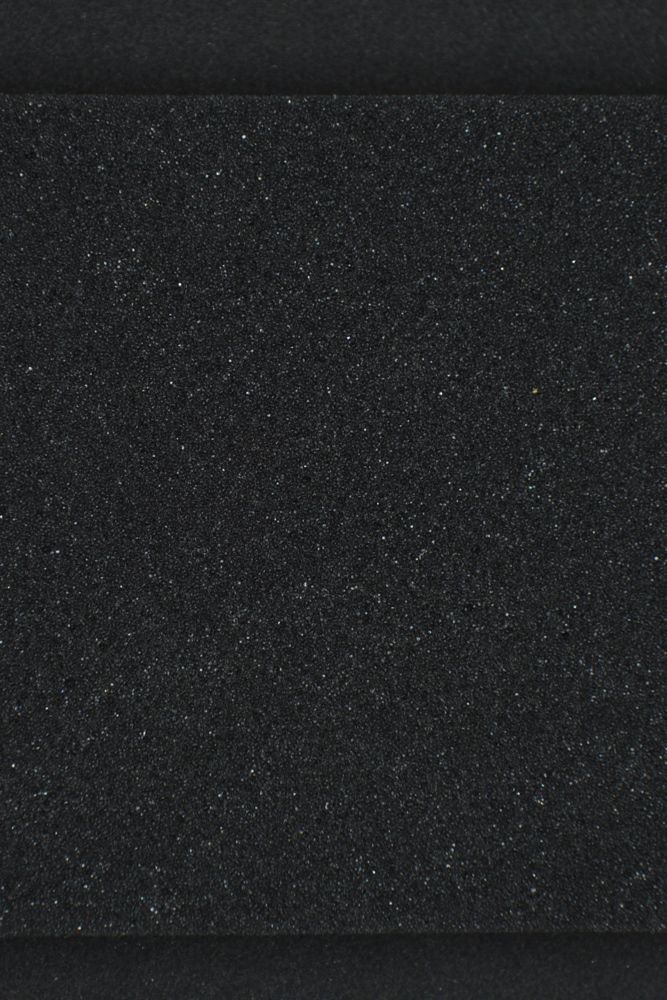
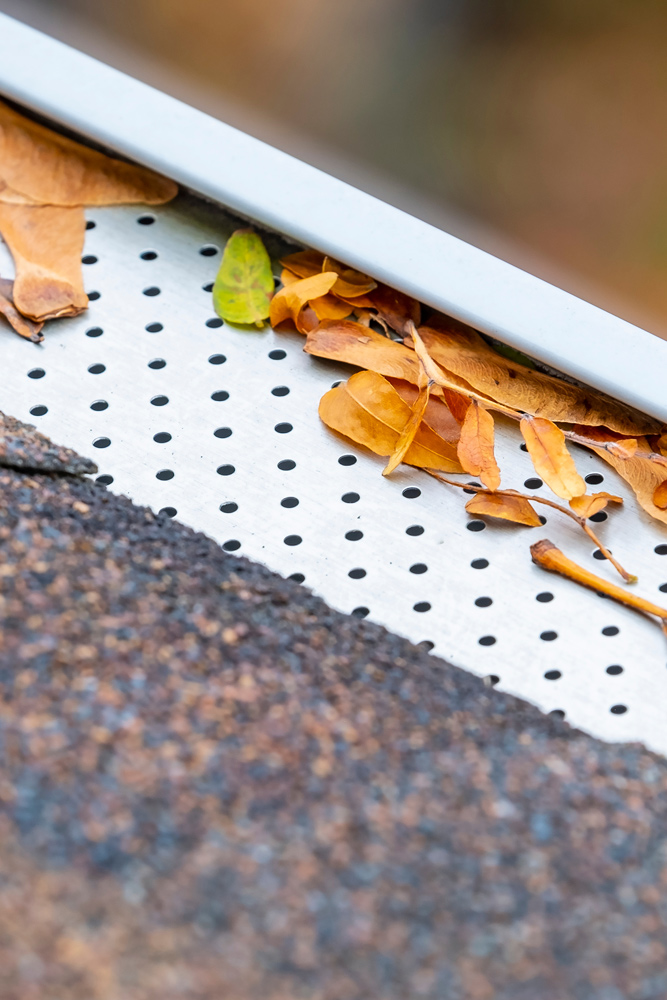
Perforated Gutter Guards
Perforated gutter guards feature tiny holes that enable water flow while preventing larger debris from entering.
Commonly made from aluminum, they are rust-resistant and very durable, making them a great option for areas with heavy rainfall.
Pros:
- Highly durable
- Hard to clog
- Keeps critters away
Cons:
- Not suitable for heavy rainfall
- Higher cost
- Small debris can still get in
Expert Assistance With Every Type of Gutter Guard
Now that we’ve shared all the types of gutter guards and their pros and cons, you might have a better clue about which one will fulfill your demands. Still, regarding your property’s integrity, you require more than clues, which is why our experts at Ebenezer Roofing LLC can assist you with all your inquiries or with premium installation services.
Don't hesitate to contact us today!
Call Ebenezer Roofing for all types of gutter and roofing solutions!
